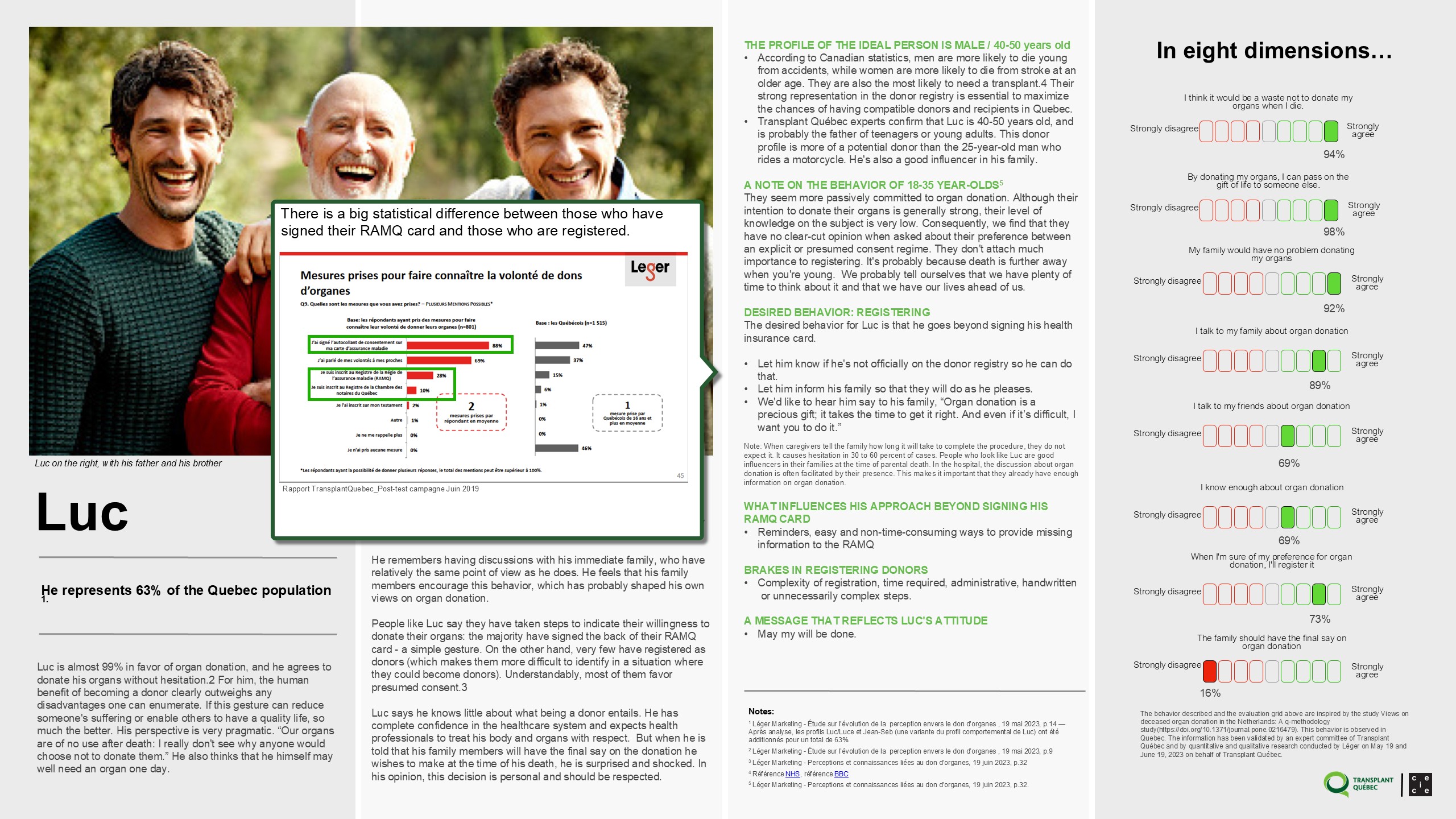Developing personas to enable tailored public health communications: The case of organ donation in Quebec
Martine Bouchard1, Malvina Klag2, Matthew Weiss1, Annie Carole Martel1.
1direction générale, Transplant Québec, Montreal, QC, Canada; 2research affiliate, James W Burns Leadership Institute Asper Business School University of Manitoba, Winnipeg, MB, Canada
Organ donation is often described as a miracle of modern medecin. Futhermore, organ donation and transplantation are know to have a positive impact on families of organ donors and organ recipients, on public health and on the overall societal burden of organ failure. Notwithstanding the potential for such a far reaching impact, Canada is faced with a chronic shortage of organs for ttransplant from deceased donors. In Québec, as of December 2022, only half of the eligible population had registered for organ donation (Transplant Québec 2023). This is despite findings from a 2022 public poll commissioned by Transplant Québec (Léger 2022) showing that over 90% of the Québec population views organ donation favourably. This raises the question of what is preventing more people, already positively disposed toward organ donation, from registering as donors. Furthermore, even if people do register, studies have shown that having conversations with loved ones about organ donation is key in ultimately securing consent in tragic moments of death (NHS Blood and Transplant 2014). In 2020 in Québec, 20% of families refused organ donation despite prior registered consent by the individual (Transplant Québec 2021). Multiple reviews of high-performing organ donation and transplantation systems agree on the critically important roleof an informed and engaged public in improving organ donation and transplantation systems. There is a need tounderstand peoples’ views, beliefs and behaviours; to engage in conversations with them; and to gain public support and trust (Johnston-Webber et al. 2023; Norris 2022; Williment et al.
2023). Moreover, the explosion of digital media technologies has created unprecedented opportunities to converse with large numbers of people in a more personalized way, which considers varying perceptions, attitudes and behaviours (Evans et al. 2019; NHS Blood and Transplant 2014).Transplant Québec undertook between 2019 and 2023 to develop a portrait of donation. The ultimate goal was to inform tailored public communication strategies regarding (1) registering to become an organ donor and (2) having family conversations about organ donation intentions. In a cost-constrained health and public health context in which perfect data are rarely available, personas can inform customized communication, education and actions. That said, personas necessarily over-simplify the real-world characteristics and richness of a population and each individual within it; this can and should be acknowledged in their use. Personas can be seen as evolutive, to be continually refined over time both as additional data become available, and as feedback is received from communications and educational initiatives that draw upon them.

The strategic communications company hired by Transplant Québec to assist in the persona development process was Companie and cie. The company hired by Transplant Québec to implement the public polls and focus groups that partially informed the personas was Leger. Linda Benoit of Transplant Québec was instrumental in translating the personas from French to English for the purposes of this article.
[1] understanding public views
[2] organ donation
[3] developing personas
[4] long organ wait
[5] public-facing communications